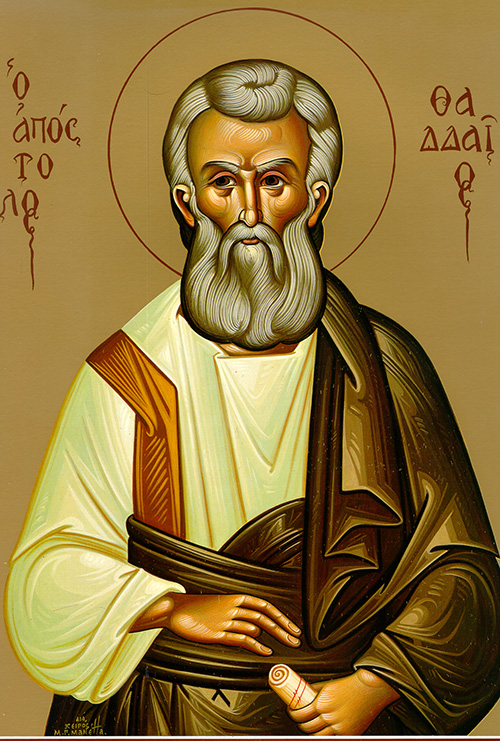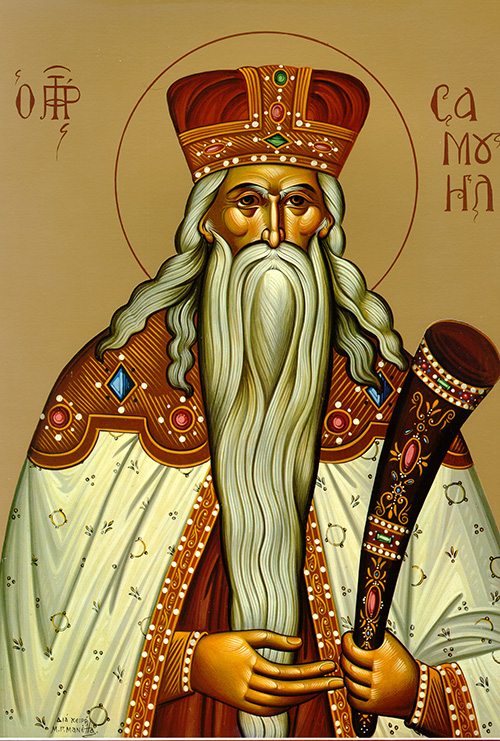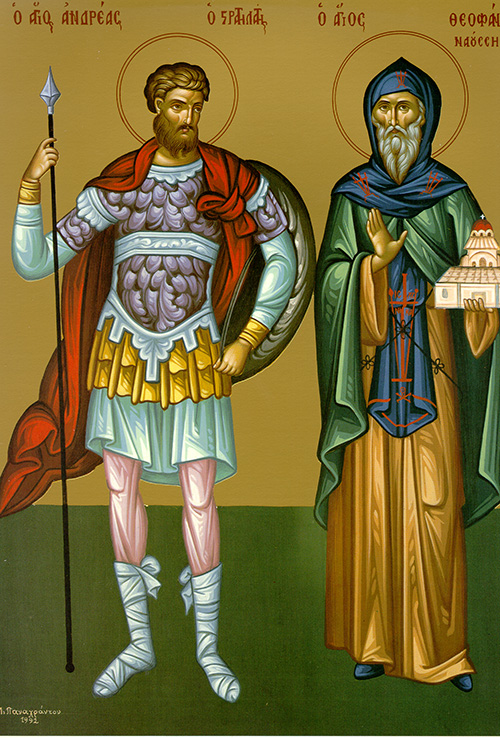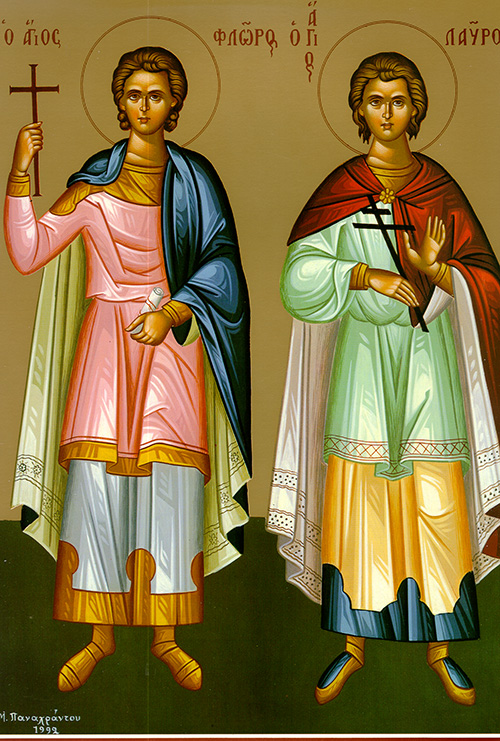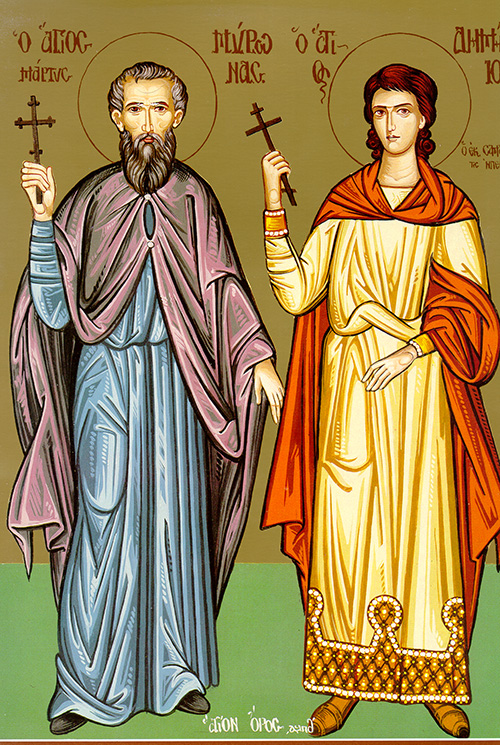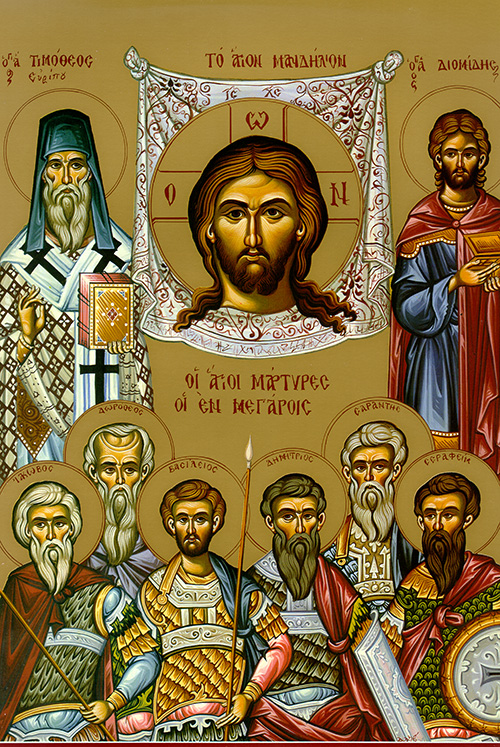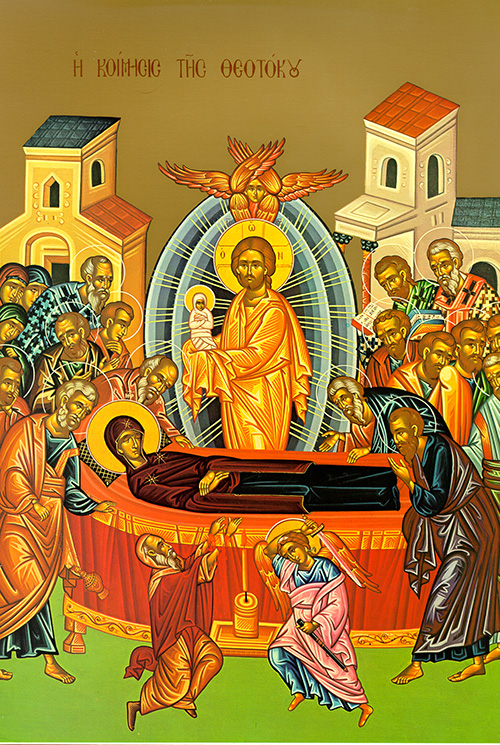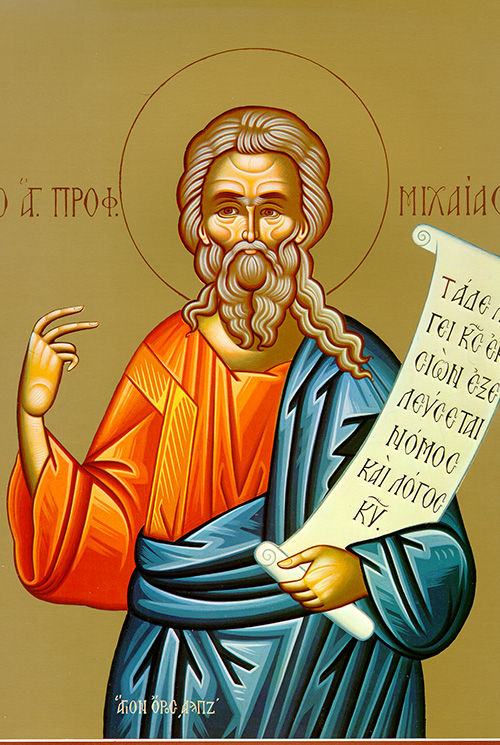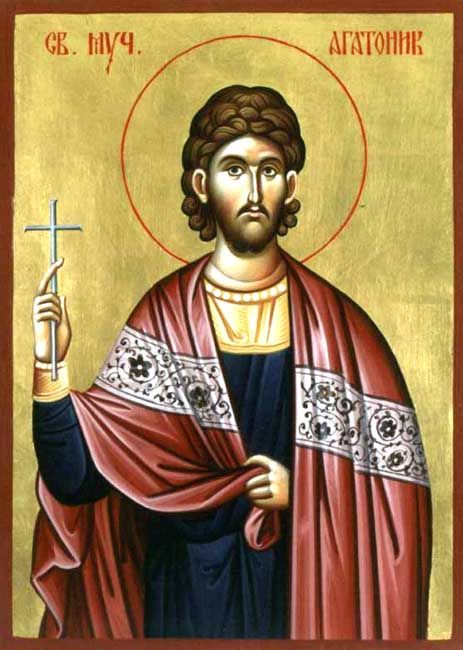

The holy martyr Agathonicus was a citizen of Nicomedia and a Christian by faith. With great zeal he converted the Hellenes from idolatry and instructed them in the true Faith. At emperor Maximian’s orders, the regional governor cruelly persecuted Christians. The deputy captured St. Zoticus in a place called Carpe. He crucified Zoticus’ disciples and brought Zoticus himself to Nicomedia where he also captured and bound Agathonicus, Princeps, Theoprepius, Acindynus, Severianus, Zeno and many others. Securely bound, they were all taken to Byzantium. As they traveled, Saints Zoticus, Theoprepius, and Acindynus died of their many wounds and exhaustion. Severianus was slain near Chalcedon. Agathonicus and the others were taken to Silybria in Thrace. There, after being tortured in the emperor’s presence, they were beheaded, and entered into eternal life and the joy of their Lord.
Troparion
O Lord our God, your holy martyrs have deserved the crown of immortality on account of their good fight. Armed with your strength, they have vanquished their persecutors and crushed Satan’s dreadful might. Through their supplications, O Christ our God, save our souls.
Kontakion
O holy martyr, you have gained a good name for yourself; you put an end to the worship of the evil ones without fearing the suffering that you would bear. Therefore, you have inherited the eternal gifts, O Agathonicus, and together with your companions, you were worthy to obtain the crowns of heaven.
Epistle
Galatians 1: 1-10, 20-21; 2: 1-5
Paul, an apostle sent not by men or by any man, but by Jesus Christ and God his Father who raised him from the dead. I and my brothers who are with me send greetings to the churches in Galatia. We wish you the favor and peace of God our Father and of the Lord Jesus Christ, who gave himself for our sins, to rescue us from the present evil age, as our God and Father willed – to him be glory for endless ages. Amen.
I am amazed that you are so soon deserting him who called you in accord with his gracious design in Christ, and are going over to another gospel. But there is no other. Some who wish to alter the gospel of Christ must have confused you. For even if we, or an angel from heaven, should preach to you a gospel not in accord with the one we delivered to you, let a curse be upon him! I repeat what I have just said: if anyone preaches a gospel to you other than the one you received, let a curse be upon him!
Whom would you say I am trying to please at this point – men or God? Is this how I seek to ingratiate myself with men? If i were trying to win man’s approval, I would surely not be serving Christ!
I declare before God that what I have just written is true. Thereafter I entered the regions of Syria and Cilicia. The communities of Christ in Judea had no idea what I looked like; they had only heard that “he who was formerly persecuting us is now preaching the faith he tried to destroy,” and they gave glory to God on my account.
Then, after fourteen years, I went up to Jerusalem again with Barnabas, this time taking Titus with me. I went prompted by a revelation, and I laid out for their scrutiny the gospel as I present it to the Gentiles – all this in private conference with the leaders, to make sure the course I was pursuing, or had pursued, was not useless. Not even Titus, who was with me, was order to undergo circumcision, despite his being a Greek. Certain false claimants to the title of brother were smuggled in; they wormed their way into the group to spy on the freedom we enjoy in Christ Jesus and thereby to make slaves of us, but we did not submit to them for a moment. We resisted so that the truth of the gospel might survive intact for your benefit.
Gospel
Mark 5: 1-20
At that time Jesus and his disciples came to Gerasene territory on the other side of the lake. As Jesus got out of the boat, he was immediately met by a man from the tombs who had an unclean spirit. The man had taken refuge among the tombs; he could no longer be restrained even with a chain. In fact, he has frequently been secured with handcuffs and chains, but had pulled the chains apart and smashed the fetters. No one had proved strong enough to tame him. Uninterruptedly night and day, amid the tombs and on the hillsides, he screamed and gashed himself with stones. Catching sight of Jesus at a distance, he ran up and did him homage, shrieking in a loud voice, “Why meddle with me, Jesus, Son of God Most High? I implore you in God’s name, do not torture me!” (Jesus had been saying to him, “Unclean spirit, come out of the man!”) “What is your name?” Jesus asked him. “Legion is my name,” he answered. “There are hundreds of us.” He pleaded hard with Jesus not to drive them away from that neighborhood.
It happened that a large herd of swine was feeding there on the slope of the mountain. “Send us into the swine,” they begged Jesus. “Let us enter them.” Jesus gave the word, and with it the unclean spirits came out and entered the swine. The herd of about two thousand went rushing down the bluff into the lake, where they began to drown. The swineherds ran off and brought the news to field and village, and the people came to see what had happened. As they approached Jesus, they caught sight of the man who had been possessed by Legion sitting fully clothed and perfectly sane, and they were seized with fear. The spectators explained what had happened to the possessed man, and told them about the swine. Before long they were begging Jesus to go away from their district.
As Jesus was getting into the boat, the man who had been possessed was pressing to accompany him. Jesus did not grant his request, but told him instead: “Go home to your family and make it clear to them how much the Lord in his mercy has done for you.” At that the man went off and began to proclaim throughout the Ten Cities what Jesus had done for him. They were all amazed at what they heard.
Icon courtesy of Jack Figel, Eastern Christian Publications – ecpubs.com


